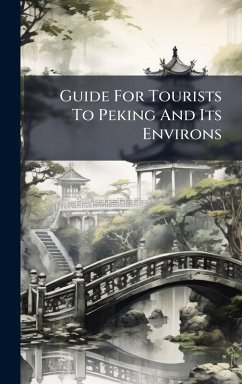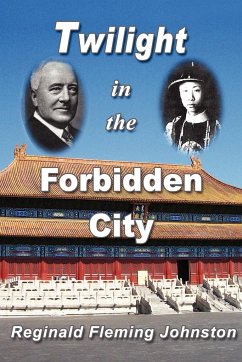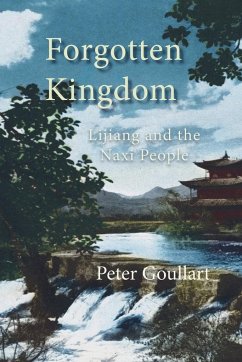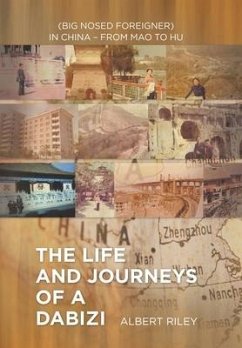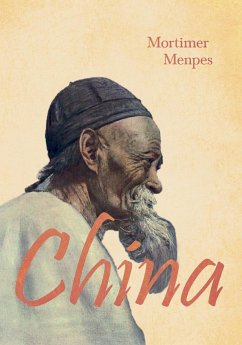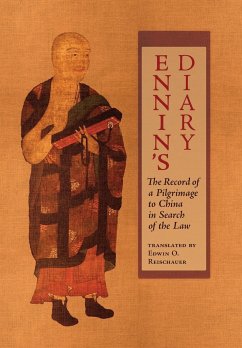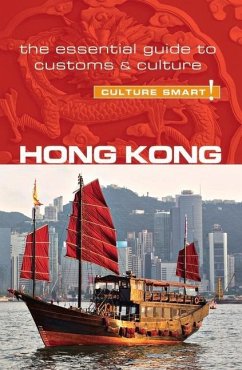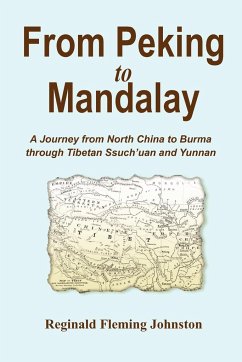
From Peking to Mandalay
Versandkostenfrei!
Versandfertig in 1-2 Wochen
21,99 €
inkl. MwSt.
Weitere Ausgaben:

PAYBACK Punkte
11 °P sammeln!
This fascinating journey details the local traditions and characteristics of a China that has since disappeared. With tales of the mystic temples and monasteries, stories of a 1000 year old monk, and areas not yet open to the modern railway or airplane, Johnston's writings could easily have been the inspiration for James Hilton's Lost Horizon. Johnston, who eventually became tutor to the boy emperor, was district officer and magistrate of Wei-hai-wei, and was well qualified, both linguistically and by travel in other parts of China, to undertake the expedition described in the present work. In...
This fascinating journey details the local traditions and characteristics of a China that has since disappeared. With tales of the mystic temples and monasteries, stories of a 1000 year old monk, and areas not yet open to the modern railway or airplane, Johnston's writings could easily have been the inspiration for James Hilton's Lost Horizon. Johnston, who eventually became tutor to the boy emperor, was district officer and magistrate of Wei-hai-wei, and was well qualified, both linguistically and by travel in other parts of China, to undertake the expedition described in the present work. In 1902 he had journeyed through Tongking, Yunnan, the Chinese Shan States, and down the Mekong to Siam; and in 1904 he had visited several of the provinces of Eastern China, and had even inspected the tomb of Confucius, and been presented to the seventy-sixth descendant in a direct line of the great philosopher and saint. The last and more ambitious tour was begun in January, 1906, the main object of the author being to explore the principalities of Eastern Tibet and thence to proceed southwards to Yunnan and Burma. Instead of ascending the Yangtse to Hankow and Ichang, Mr. Johnston followed the more interesting Lu-han railway route that the completion (a few weeks previously) of the famous bridge across the Yellow river had made possible. He was thus enabled to reach Hankow, 759 miles from the capital, in three days. The journey thence up-stream, past Ichang, is, of course, well known ; at Wan-hsien the great river was abandoned, the hardy boats¬men paid off, and the land journey to Chengtu-fu commenced. Here and elsewhere it is gratifying to note the uniformly good behaviour shown to the author; even at Liang Shan, where the late Mrs. Bishop was mobbed and so seriously knocked about, he found the people orderly and good tempered. At Chengtu-fu and else¬where light was shed on some of Mr. E. C. Baber's researches, not the least interesting points referred to being the temples and the prehistoric cave dwellings of Chiating, and the wonderful fascination of Mount Omei the highest precipice in the world, with its strange atmospheric phenomenon of a gleaming aureole, the "Glory of Buddha." Pilgrims are expected to have certificates sealed at the summit as proof of their having visited the sacred place; probably the European notion of sending off postcards from the topmost monastery may eventually prevail. At Ta-chien-lu the author had to carefully consider his further route, and eventually, after encounter¬ing great opposition from the local authorities, decided to diverge from the Batang road and explore the Yalong valley and the mountainous road south-west of Ta-chienlu. Along this section of the route his only predecessors had been M. Bonin and Mr. Amundsen. The inhabitants of these parts seem all Tibetan, for between Cheto and Likiang in Yunnan-about a month's journey-the author did not meet a single Chinese, even the language being entirely unknown. At Muli, which looks strangely like a bit of the Austrian Tyrol, Captain H. R. Davies's route was struck, and European associations were further called up by the excellent chanting of the monks in the lamasery, which reminded Mr. Johnston of Palestrina. A little further south the remarkably acute bend of the Yangtze was reached, a geographical feature only revealed to science within the last ten years. At Likiang a French gentleman, engaged in the purchase of musk, was met, and from thence to Tali-fu and the Burmese frontier is fairly well-trodden ground. Mr. Johnston's return to Wei-hai-wei was by sea. His familiarity with Chinese, and careful study of ethnological and other questions, and of the native literature, invest his notes with special value, which would hardly attach to the researches of an ordinary traveller, while his concluding chapter contains some exceedingly well-weighed and instructive reflections on the relations between China and Western nations.





